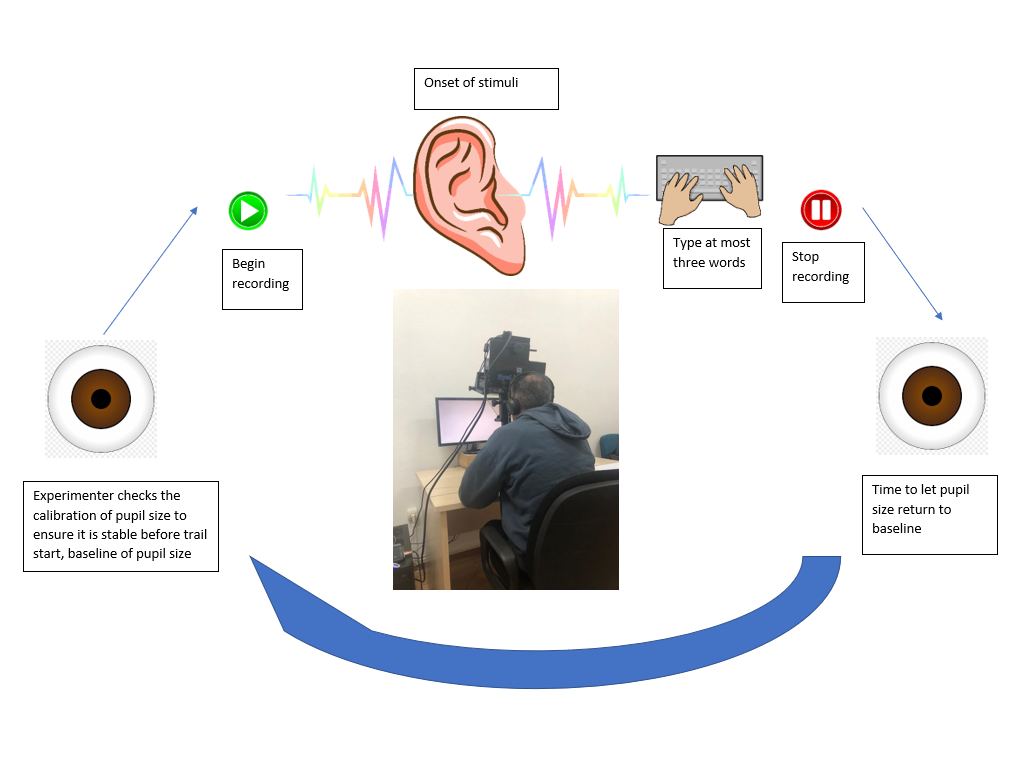Ph.D. Candidate: Serap Yağmur
Program: Information Systems
Date: 06.09.2023 / 10:00
Place: A-212
Abstract: This PhD thesis investigates how selective directional auditory attention affects eye movements and pupil responses, demonstrating that concentrating on stimuli from a single-ear enhances attentiveness and task performance. The study investigates how multi-talker speech interference, age, gender, and audio direction impact eye movements and pupil dilation. Interference notably affects pupils, with participants instinctively directing gaze towards sound sources and exhibiting larger pupils during competing speakers, revealing a key aspect of this study. These findings underscore the utility of eye movement patterns and pupillometry as tools for capturing nuances in selective auditory attention. This holds profound implications for advancing hearing aid technology and improving communication abilities for individuals with autism spectrum disorder or hearing impairments. Moreover, this research uncovers an unexplored link between Perceptual Evaluation of Speech Quality (PESQ), Speech Intelligibility (SII), Signal-to-Noise Ratio (SNR) values for Turkish stimuli, and pupil dilation. Furthermore, this study examines whether presented stimuli involve familiar or unfamiliar words, probing emotional connotations effects on pupil dilation responses. The research establishes a link between speech quality and pupil dilation, indicating better performance with higher-quality auditory stimuli, regardless of lexical popularity or meaning. Ultimately, the study underscores the distinction between hearing and listening, highlighting pupil responses as a window into these cognitive processes. This thesis advances our understanding of how selective auditory attention shapes eye movements and pupil responses, fostering innovations in assistive technologies and reshaping our perceptions of auditory experiences.
